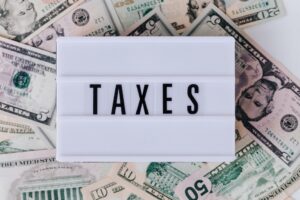My property taxes are escrowed with my mortgage.
How do I know they are being paid?
 First, let’s be sure you understand how mortgage escrow works. Escrow is a legal agreement for a third party to hold your funds until it is legally time to provide them to another party.
First, let’s be sure you understand how mortgage escrow works. Escrow is a legal agreement for a third party to hold your funds until it is legally time to provide them to another party.
In a property tax escrow, you provide the lender 1/12th of the estimated annual taxes each month along with your mortgage payment. Your mortgage payment is applied to the interest due and a portion of the principal debt on the loan. Your lender holds the tax payment in a restricted or escrow account until the tax payment is due. At that time the lender or a service company sends your town your tax payment.
Federal law requires the bank or lender to give interest on the escrow it collects and to provide you annually with a statement showing what is done with your money. Because taxes may change from year to year, the escrow amount you send monthly may also be adjusted annually.
The same is true if homeowner insurance premiums are included in escrow. In most Connecticut towns taxes are due twice a year. Your escrow statement would show taxes paid in January and July. It is also typical for a lender to keep a two month cushion on the escrow balance for property taxes and insurance premiums.
How can I check if a tax payment was made for me?
Many towns have tax records available on the town website. These are usually found in the tax collector department where there will be a link for online lookup of tax bills. Once there you can enter your name and you will be able to see the tax bills and when the most recent payment was made. Be careful to find the most recent. If you are searching in 2021 you will probably see 2019 as a choice. Since tax collectors reference by grand list of the previous year and not due date, that will be the most recent bill.
Who pays my taxes if I pay off my mortgage?
Lucky for you to pay off your debt. When you have paid off or retired a mortgage, your lender should send a Release of Mortgage to you along with your original note marked Paid in Full. The Release of Mortgage needs to be recorded in your town clerk’s office. Once recorded, the tax collector will know that the lender is no longer involved in paying your property tax bill. You will start receiving tax bills at your address on file. We recommend you also call the local tax collector and confirm where your tax bill should be sent. Failure to receive a tax bill will not excuse you from late charges.
What happened to my escrow balance when I paid my mortgage in full?
Your lender may have included the escrow as a credit when you were given the amount to pay off the loan. If the lender did not, you will receive a check for the escrow balance.
What are late charges for tax bills and when do they start?
In Connecticut, the annual tax bill is due and payable on July 1 of each year However, state law provides a grace period for charging of interest if payments are late. In the case of a town that has semi-annual tax collection, or twice a year, the first half of the annual bill is due in July. If it is paid in July, no interest is charged. If July ends on a Saturday or Sunday, payment on the next business day is allowed without interest. A late payment made in August will have interest for both July and August. Interest is added on the first day of each month so any payment in August will include August interest. Right now, because of COVID 19 many towns are able to reduce the interest rate, which is normally 18% per year. That relief will end when there is no longer a crisis.

Cramer & Anderson has a team of real estate attorneys with decades of experience in the full range of issues that affect, and arise from, the sale and purchase of residential and commercial properties. Connect with us via the button below to learn more.

